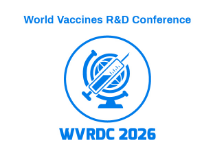Speakers - 2025

Semra Soydam
Semra Soydam
- Designation: Hacettepe University
- Country: Turkey
- Title: Limitations of BCG and Booster Vaccine Research
Abstract
Tuberculosis (TB) is an infectious disease that primarily affects the lungs. TB is transmitted from person to person through the air. Individuals with pulmonary TB release Mycobacterium tuberculosis bacilli into the air when they cough, sneeze, or spit. Inhaling just a few of these bacilli is enough for a person to become infected. Approximately one-quarter of the world’s population is estimated to harbor a latent TB infection. People infected with the tuberculosis bacterium have a lifetime risk of developing active TB disease of about 5–10%. Immune‑weakening factors such as HIV, malnutrition, diabetes, or tobacco use significantly escalate the risk of disease.
Bacillus Calmette–Guérin (BCG) is the only currently licensed vaccine against tuberculosis and is included in routine vaccination programs in around 180 countries. BCG, a live‑attenuated strain of Mycobacterium bovis isolated from cattle, has been the sole licensed vaccine to significantly contribute to TB control for over 80 years. It is administered in many countries as part of standard childhood immunization schedules. While BCG is estimated to provide approximately 80% protection against TB meningitis and miliary TB in infants and young children, it is not effective as a therapeutic vaccine for latent infection. Moreover, its efficacy against pulmonary TB is limited, and a second booster dose administered during school age has not been shown to confer additional protection.TB remains particularly dangerous for individuals infected with Human Immunodeficiency Virus (HIV) or those with suppressed immune systems, where morbidity and mortality rates are exceedingly high.
According to WHO, despite global vaccination efforts, approximately 1.7 million people die from tuberculosis every year. TB remains among the top 10 causes of death worldwide and is the second leading infectious killer, only behind COVID‑19 and ahead of HIV/AIDS. The emergence of multidrug‑resistant TB (MDR‑TB) and extensively drug‑resistant TB (XDR‑TB)—caused by strains resistant to first‑line treatments like isoniazid and rifampicin—has made treatment of advanced disease increasingly difficult.
In this presentation, we will present an overview of ongoing booster vaccine development efforts for the treatment of tuberculosis, followed by a summary of the research conducted at the Hacettepe Vaccine Institute.

